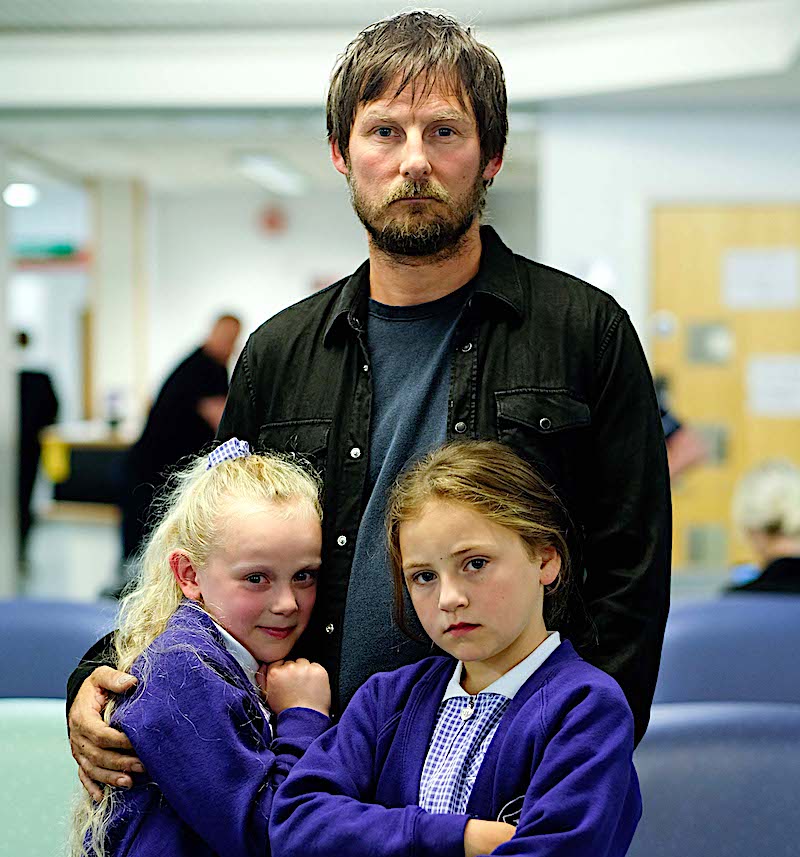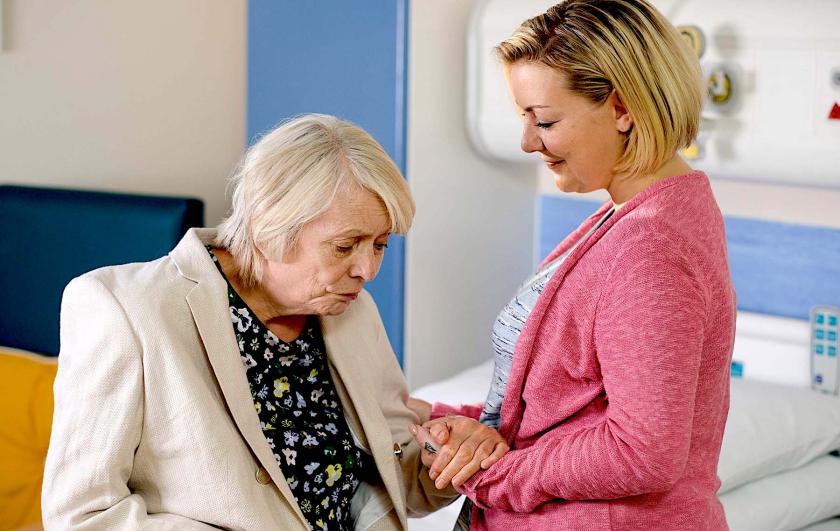You wouldn’t turn to Jimmy McGovern for a drawing-room comedy, but there’s no doubting his gift for seizing big issues and turning into them raw, bleeding chunks of drama. You’re either for him or against him, but if you’re against him he’d love to grab you by the throat and shake you into seeing it his way.
In Care, McGovern (with co-writer Gillian Juckes, whose first-hand experiences inspired the story) took aim at the way the NHS and social services treat the elderly and the incapacitated. The set-up was simple but devastating. Mary (Alison Steadman) had been taking her two granddaughters out for fish and chips, but on the drive home she had a stroke. This didn’t just leave her with impaired speech, but triggered vascular dementia, rendering the poor woman incapable of caring for herself or able to comprehend the simplest instructions. Steadman coped with a mostly sub-verbal role by deploying a painfully eloquent range of gestures, expressions and anguished body language.
 Mary had two daughters, Jenny (Sheridan Smith) and Claire (Sinéad Keenan, pictured right), but as so often happens, it’s Jenny upon whom most of the burden of Mary’s condition devolved. It was a smart move casting Smith, who has a lock on how you radiate down-to-earth empathy. She had no hesitation in dropping everything to look after her mum, but this meant losing her job at the supermarket. Having already separated from her flaky ex-partner Dave (Anthony Flanagan, pictured below with Macy Shackleton and Lola Shaw), a terminal waster who would consider getting out of bed an exhausting day’s work, she’d been struggling to bring up her daughters, and now her mother was in no state to help out. And since Dave was not only unemployed but had got his new girlfriend pregnant, any contributions from that quarter could be ruled out.
Mary had two daughters, Jenny (Sheridan Smith) and Claire (Sinéad Keenan, pictured right), but as so often happens, it’s Jenny upon whom most of the burden of Mary’s condition devolved. It was a smart move casting Smith, who has a lock on how you radiate down-to-earth empathy. She had no hesitation in dropping everything to look after her mum, but this meant losing her job at the supermarket. Having already separated from her flaky ex-partner Dave (Anthony Flanagan, pictured below with Macy Shackleton and Lola Shaw), a terminal waster who would consider getting out of bed an exhausting day’s work, she’d been struggling to bring up her daughters, and now her mother was in no state to help out. And since Dave was not only unemployed but had got his new girlfriend pregnant, any contributions from that quarter could be ruled out.
So the question was, how much care was the state willing or able to provide for Mary and other patients like her? There wasn’t a simple answer, more like a sequence of tedious box-ticking options that had to be laboriously worked through. Once Mary’s condition had been assessed by doctors, the attitude of the hospital was that they’d like her out as fast as possible because they needed the bed. However, there weren’t any available places for rehabilitation, so the other option was to send her home, but Mary wasn’t capable of passing the “make yourself a cup of tea” test that would qualify her as fit to be discharged (she ate the teabag instead). Jenny, appalled by her distraught and fearful mother having to sit in a meeting where medical professionals discussed her situation with cold-blooded aloofness, volunteered to take her to her own home, but health and safety rules decreed that it had to be fitted with all kinds of safeguards and modifications before that could happen.
McGovern and Juckes forcefully nailed the anxieties and emergencies that plague anybody in these circumstances. When Mary was temporarily accepted into a nursing home, she immediately sent Jenny into a panic by wandering outside and going missing, eventually being brought back by a couple of police officers. This prompted one of McGovern’s Basil Exposition interludes, where the care home nurse delivered a monologue about how they were underfunded and understaffed, couldn’t afford to buy the most absorbent incontinence pads, and how it was impossible for three staff-members to care for 30 patients, many of them suffering severe dementia. It was as subtle as a head-butt, but it seems McGovern doesn’t mind as long as you get the message.
 It wasn’t just the state-run facilities that let Jenny down. When she left sister Claire at home to look after Mary, she sneaked out in her car and once again mum went AWOL. Although Claire struggled to find much empathy for her mother’s condition – “You know the best thing a mother can do for her children? Die” she told Jenny – it was she who unexpectedly delivered an impassioned speech about how the NHS writes off elderly patients because caring for them isn’t considered cost effective. It was a powerful moment because we know it’s true.
It wasn’t just the state-run facilities that let Jenny down. When she left sister Claire at home to look after Mary, she sneaked out in her car and once again mum went AWOL. Although Claire struggled to find much empathy for her mother’s condition – “You know the best thing a mother can do for her children? Die” she told Jenny – it was she who unexpectedly delivered an impassioned speech about how the NHS writes off elderly patients because caring for them isn’t considered cost effective. It was a powerful moment because we know it’s true.
Against the run of play, there was a surprise reassuring ending thanks to the NHS’s Continuing Healthcare programme, although Jenny and Claire had to storm the bureaucratic barricades to access it. This was drama fashioned from rough-hewn logs rather than needle-point stitching, but it punched its points home hard enough to leave the exhausted viewer nursing painful bruises.















Add comment